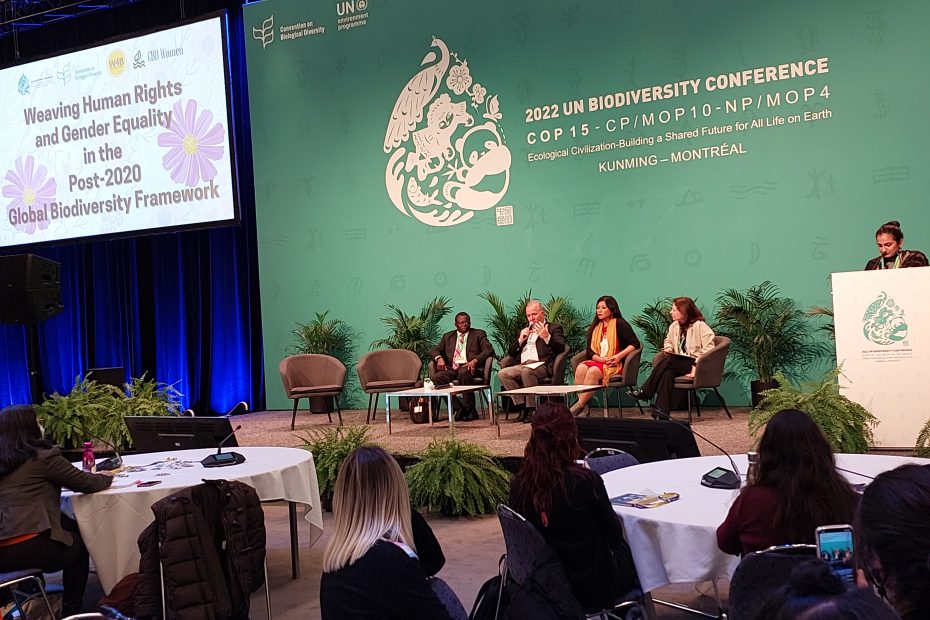The Gender Program was a 2 day event organized by United Nations Convention on Biological Diversity (UNCBD) Women’s Caucus and Convention on Biological Diversity (CBD) Secretariat. It was held in the Auditorium of the “Palace Québec” on the 10 and 12 December 2022. The aim was to ensure that the Post- 2020 Global Biodiversity Framework (GBF) is Gender Responsive and has a Human Rights Based approach (HRBA) that highlights the importance of women in biodiversity.
This event was an open space for the parties, stakeholders, youth and all attendees to discuss and assess the existing solutions and concrete ways forward to effectively integrate these two approaches in all biodiversity-related policies and practices at all levels.
It was also the exhibition of the photo contest held months before by Women4Biodiversity (#SheShapesDiversity). This event was an important milestone in the history of the CBD COP, as it is the first time that an event has been held with a focus on gender and women’s contributions to biodiversity as the main theme.
The first day of the program was a fun reception, we had a brief welcoming remark to the event, then the guests were able to express themselves through painting and art by painting the mural, reciting poems, singing songs and dancing. It was a unique moment of integration in which all attendees were able to relax and share an unforgettable moment.
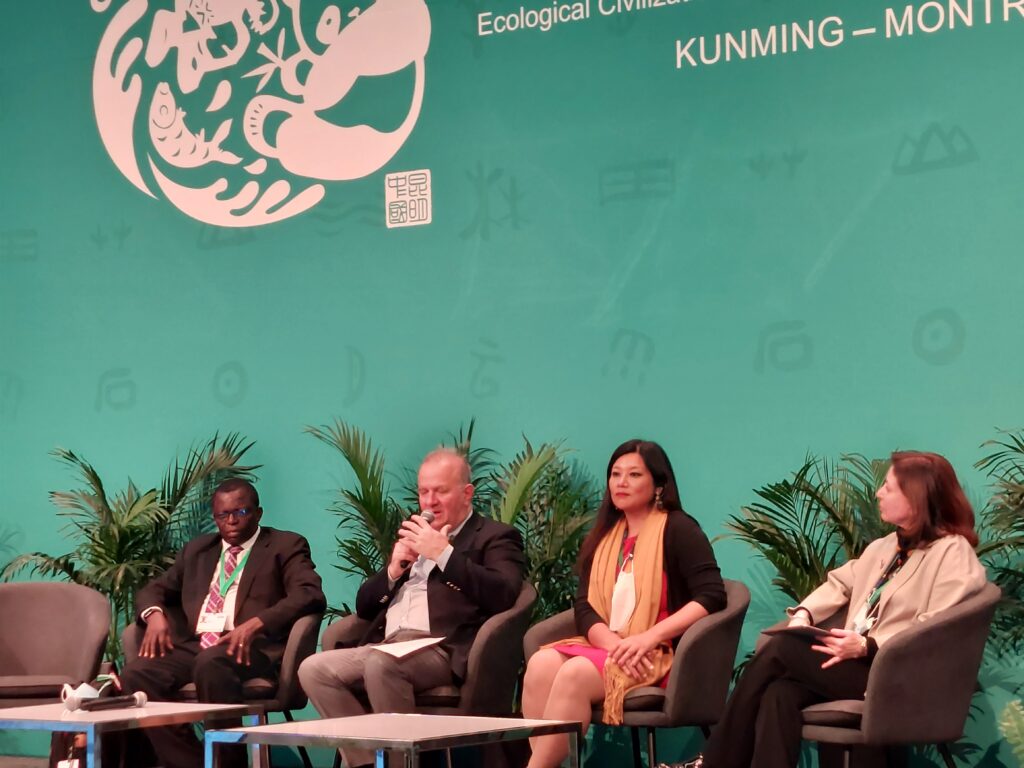
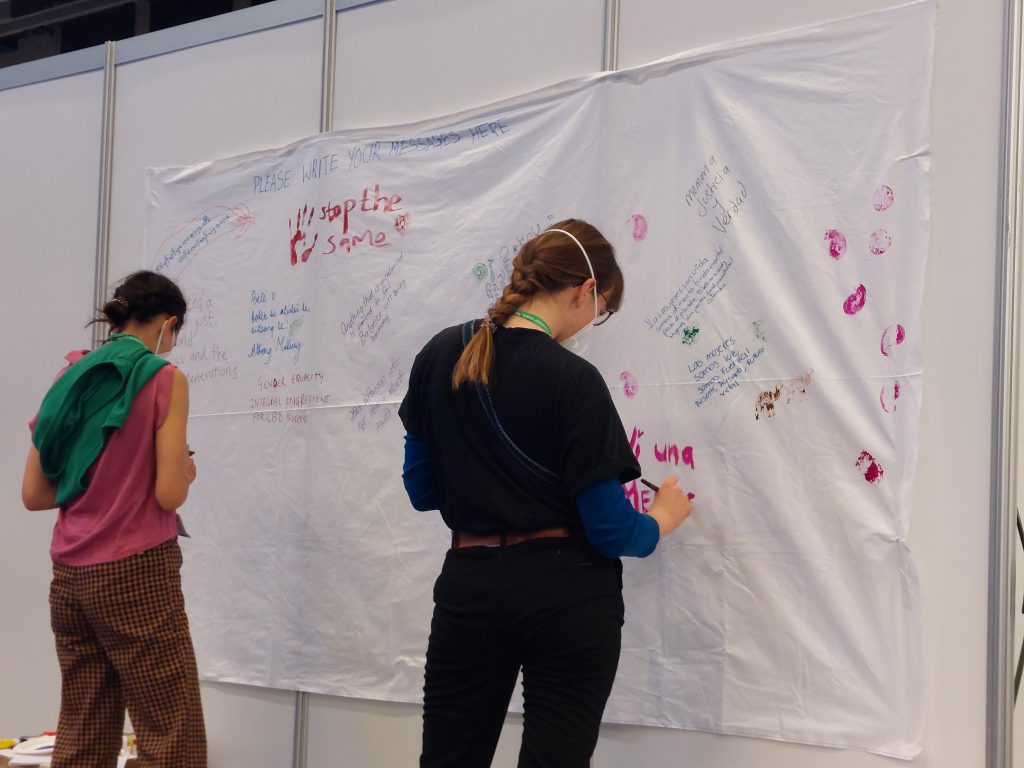
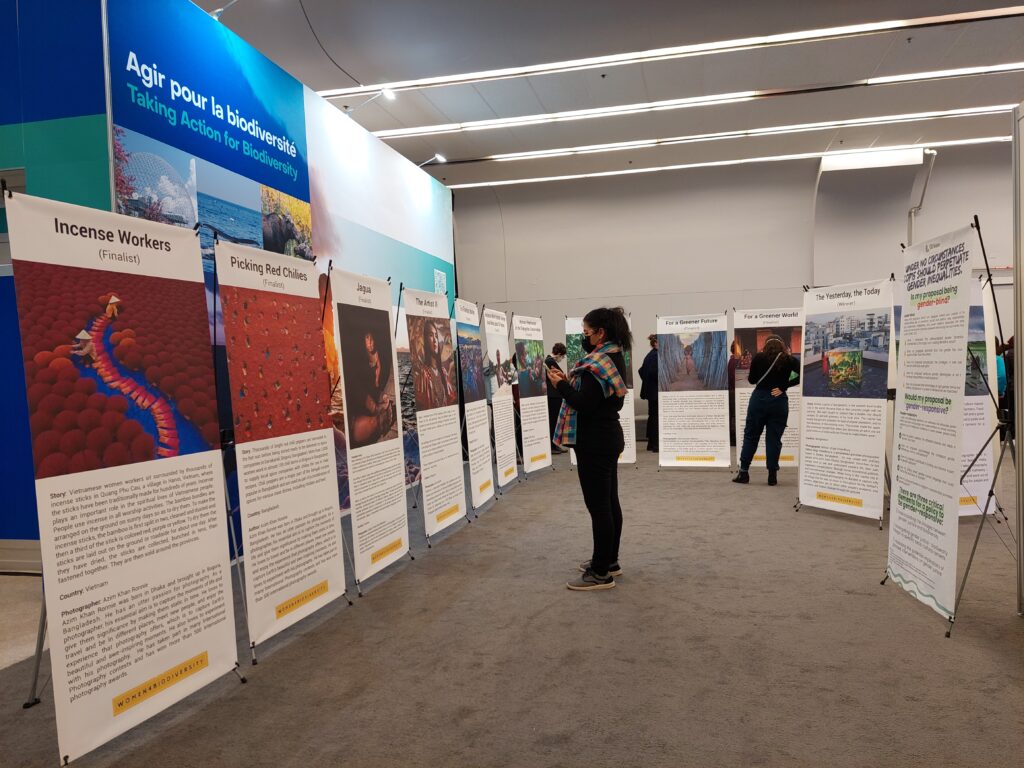
The second day of the event addressed relevant topics to human rights and gender approach in the GBF Post-2020. The first panel was “Gender Responsive Resource Mobilisation”. The panel discussed the urgent need for gender-responsive biodiversity financing, policy coherence and financial commitments to ensure that gender justice is at the heart of post-2020 implementation. Furthermore, effective and immediate implementation of the Gender Action Plan were also discussed. The experts on the panel were Amelia Arreguin (Women4Biodiversity); Verona Collantes [Global Environment Facility (GEF)], and Henrik Brundin (Swedbio). They addressed the actions necessary to reduce social gaps.
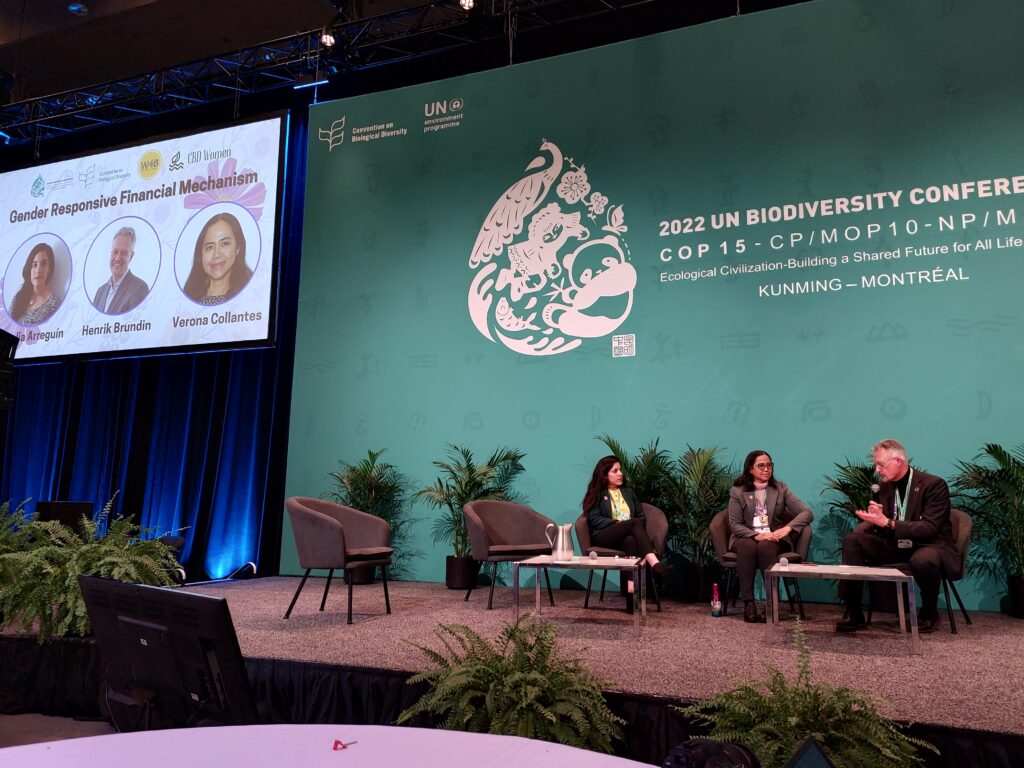
The second panel consisted of Jackie Siles (IUCN), Marion Marigo (UNDP), and Mrinalini Rai (Women4Biodiversity). They addressed the importance of sex-disaggregated data to effectively monitor progress on gender equality and it’s effect on the adoption of the post-2020 global biodiversity framework.
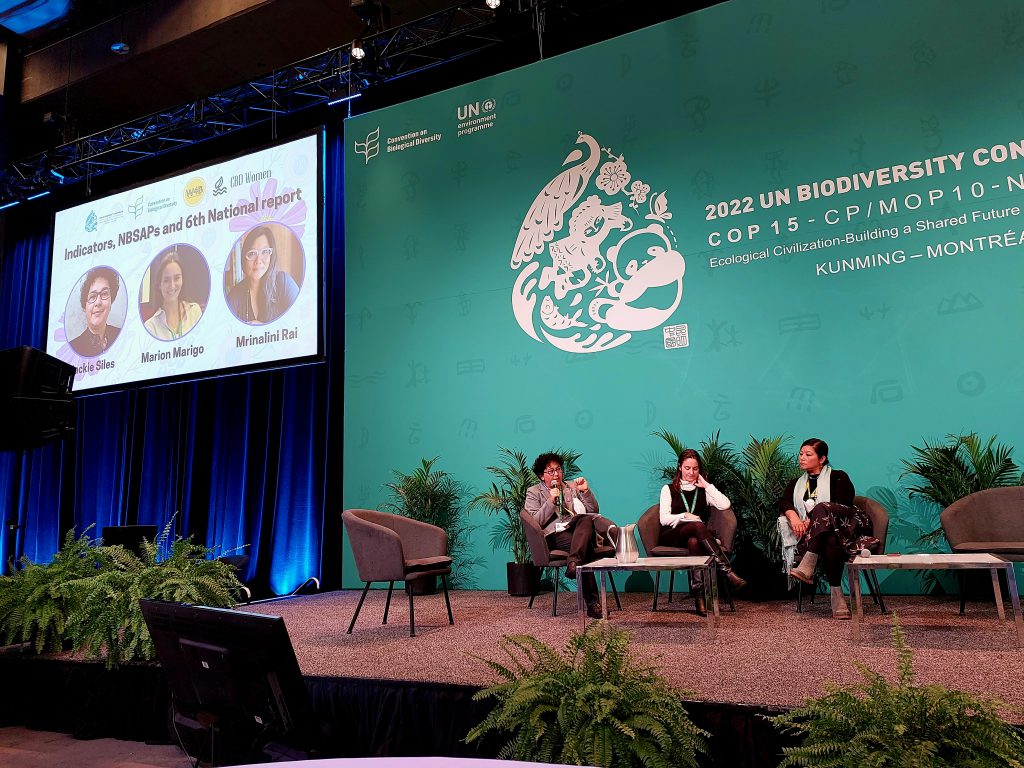
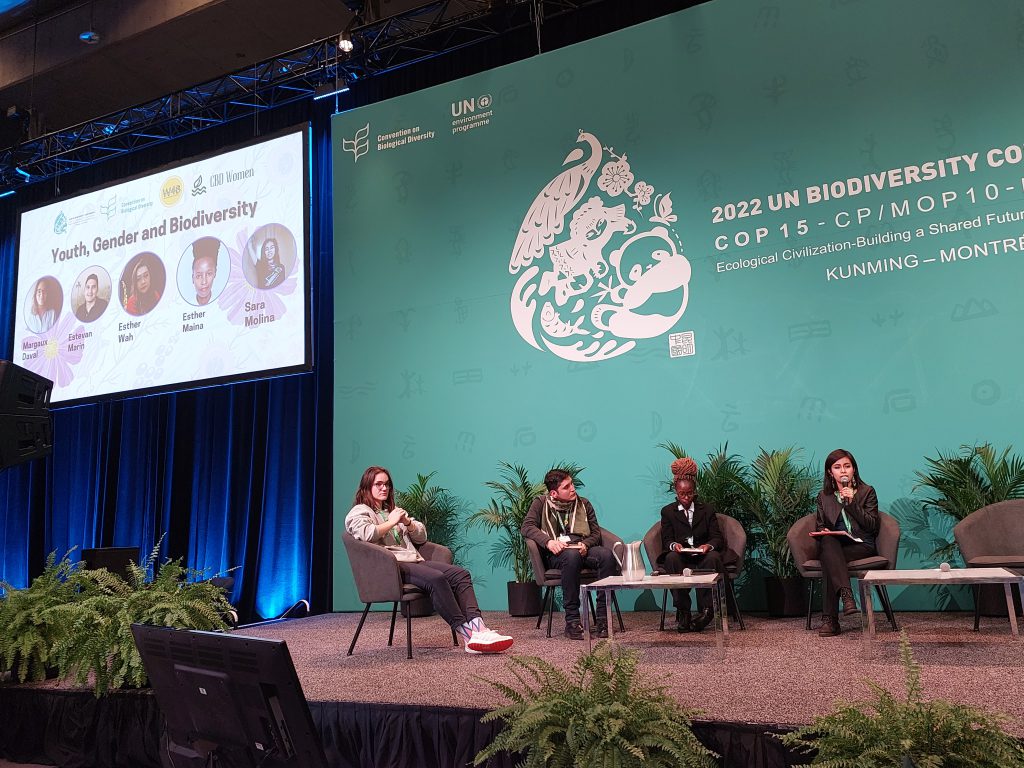
Overall, this event was successful in raising awareness on the importance of taking a human rights and gender approach in the Post 2020 Global Framework including the actions needed to effectively implement the Framework. On top of being a lively exchange, the attendees also shared their experiences and integrated new learnings in their knowledge.
